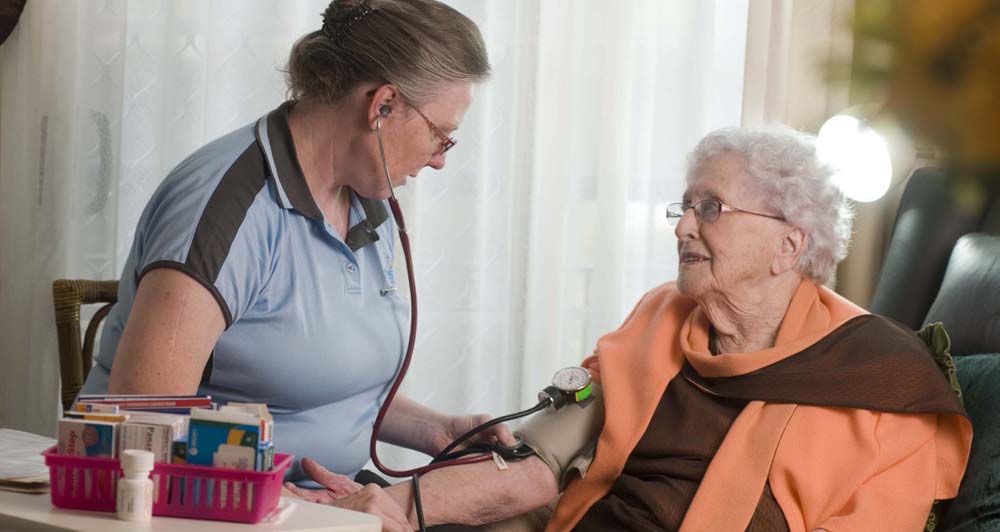RDNS embraces the local approach

A revamp puts staff at a Victorian-based provider in closer contact with the patients they serve.
More than 1200 RDNS nurses and the 40,000 patients under their care annually will soon operate under a new localised and consumer-focused approach to service delivery.
The Victorian-based home nursing and healthcare provider is revamping its service strategy, as healthcare providers nationwide consider how best to manage the needs of a rapidly ageing population.
RDNS Victoria general manager Fiona Hearn said demographic changes, combined with reform in the primary healthcare and aged-care sectors, as well as a rise in chronic disease, led to the development of a new consumer healthcare approach.
“We have had to review our clinical governance framework,” Hearn said. “We have drawn heavily on the Australian Commission for Safety and Quality in Healthcare, [which means] we have got the focus on the consumer, the importance of information and also safety.”
Greater consistency, better continuity of care and better relationships with the local health areas are amongst the potential benefits of new localised teams, Hearn said.
“We have [tried] to get a much closer relationship with the local community,” she said, adding that a large part of this has been clarifying and confirming a skill mix for [the new] teams that can be launched across the organisation.
Teams will now consist of a senior nurse, two RNs and two enrolled nurses and assistants who work in one specific area.
Hearn said not only would clients benefit from the continuity of care but also the process would embed and guarantee the supervision and scope of practice of enrolled nurses and support staff by establishing strong local teams led by experienced RNs.
“RDNS has introduced and embraced enrolled nurses in recent years and this team model ensures that we have the appropriate support and supervision in place locally.
“In fact, we have now established a transition-to-practice program for enrolled nurses to ensure they are appropriately prepared for working in the community.”
The new local focus has been trialled at four of the group’s sites and has shown positive results. Nurses saw an increase in their capacity to respond to clients, leading to greater job satisfaction.
As part of the initiative, nurses will now also start and finish within their designated areas, meaning they avoid having to begin or end the day at an RDNS site, which maximises time with patients.
One of the nurses who took part in the trial described her experience as “nearly 100 per cent positive”.
“I find that I am less stressed and have more face-to-face quality time with my clients,” the nurse said. “I actually get to see all of my primary area clients – which I didn’t do prior to the trial – as I remain in the area longer, meaning that my clients rarely have to be off-loaded.”
The trial also brought to light the need for an update of RDNS’s client care record system, so it is completely electronic and no paper is required in a patient’s home. The group is procuring a replacement.
“The issue with our existing client record is it is not totally electronic,” Hearn said. “Our mobile computers deal with approximately [three-quarters] of it – but there is a component that is still paper based within the home.
“The benefit of this will be that everyone will be accessing the same information about the client. If a clinician is in the home and wants to talk to a consultant nurse – like a wound consultant – they can both read that client data together from where they are.”
The new direction is the group’s answer to the health system’s strong focus on the consumer and the move to person-centred care.
“Consumer focus is certainly being recognised in policy at the moment, as is choice,” she said. “It makes you step back as an organisation and say, ‘OK, how we respond to this?’ I see great opportunities going forward. I think the whole system can only benefit from people focusing on the consumer and the consumer outcome.”
RDNS is consulting with staff and their representatives now and hopes to launch the new strategy by the end of this calendar year.
“Having this local focus on local empowered teams really does mean we have got that point of integration and that ability to work locally to influence local outcomes,” Hearn said.
Email: [email protected]




